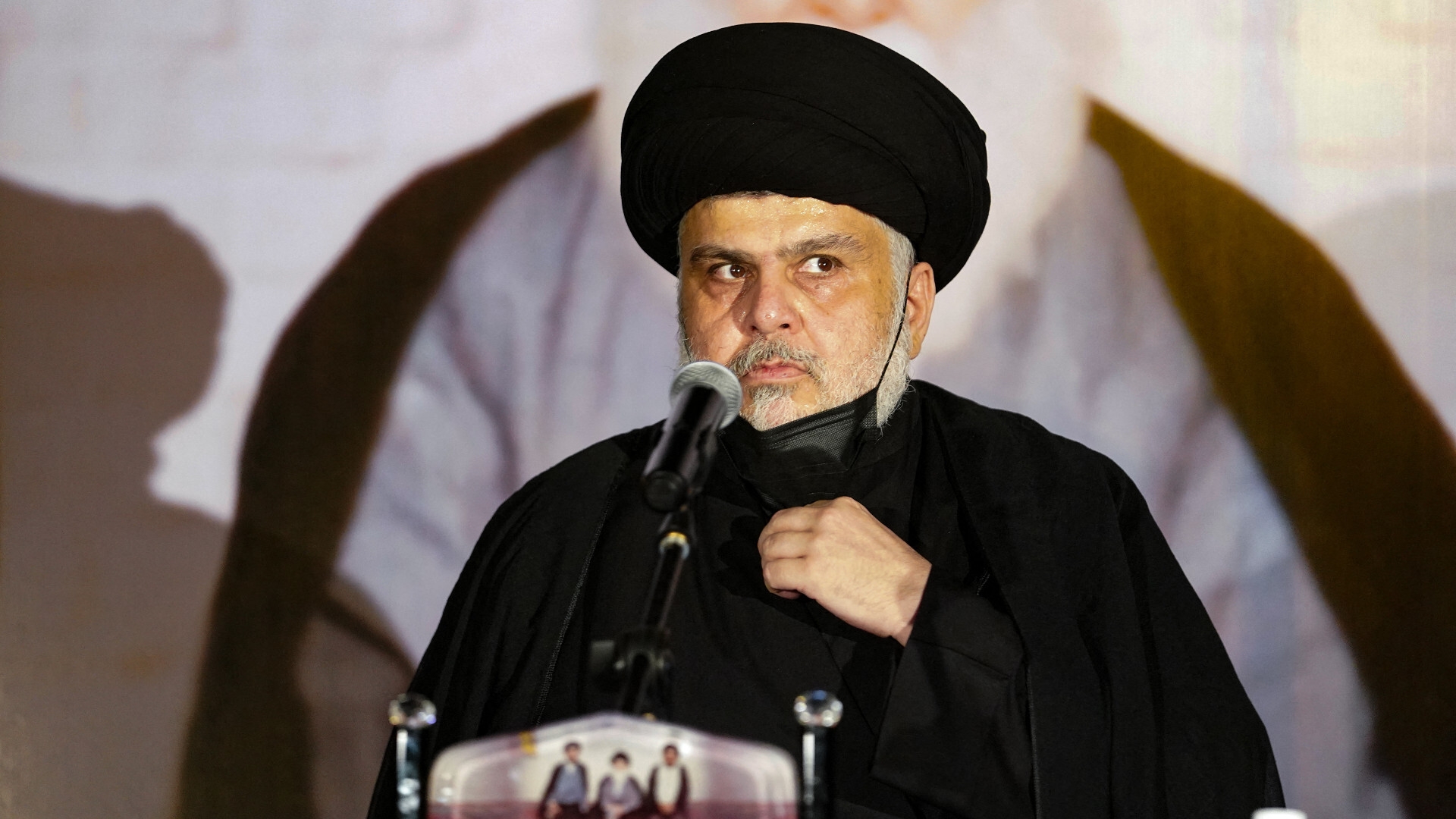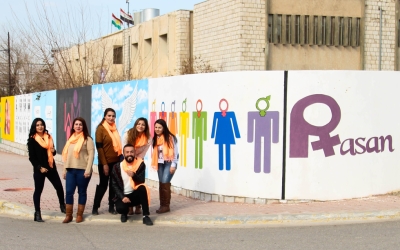Iraq: Draft law to ban LGBTQ+ publishing as Sadr tweets more homophobia

LGBTQ+ Iraqis have reacted with alarm to a draft law that would ban any publishing on queer issues in Iraq, which legislation activists say would increase hate speech and violence against the community in an already worsening atmosphere of homophobic hostility.
On 3 December, 25 MPs, mostly belonging to Shia group Coordination Framework, which opposes influential cleric Muqtada Al-Sadr, who is also Shia, signed a bill proposing the criminalisation of all publishing on LGBTQ+ topics in Iraq.
The proposed law would “punish” anyone who “promotes homosexuality for any reason, whether in state’s media, institutions, schools, universities, and social media platforms, books, cinemas, theatres, publications, and in public”.
Individual citizens could be fined one million Iraqi dinars ($685), while government bodies and companies could be fined millions more.
'I do not know how Sadr wants to fight homosexuality peacefully. What kind of peace is he talking about?'
- Mohammed Qasim, human rights activist
A vote on the law has not yet been scheduled, and it may not pass.
New MEE newsletter: Jerusalem Dispatch
Sign up to get the latest insights and analysis on Israel-Palestine, alongside Turkey Unpacked and other MEE newsletters
Parliament speaker Mohammed Halbousi said in an interview last week: “We do not need a law to criminalise homosexuality, we have the law of heaven, of religion, that rejects such fornication.”
But activists say the proposed law is another example of deteriorating conditions facing LGBTQ+ communities.
The bill came just days after the country’s most prominent Shia cleric, Muqtada al-Sadr, called on his millions of followers to unite to combat “the LGBTQ community, not with violence, nor with murder and threats, but with education, awareness, logic and high moral standards”.
Sadr controlled the largest bloc in parliament until June, when his MPs quit their seats after failing to form a government.
In another recent statement, he wrote: “Our goal is to acquaint, guide, and prevent them from being drawn into forbidden desires and lustful and chaotic freedom.”
This is not the first time Sadr has demonised LGBTQ+ people. In May 2022, he blamed them for the spread of the monkeypox virus. He did the same with Covid when the pandemic struck.
For Mohammed Gailan, an Iraqi human rights activist, Sadr is being opportunistic. “I think that through these trendy topics, he’s just trying to fit in both politically and ideologically,” he told Middle East Eye.
“It is a strategy to mobilise the factions that are left of his followers. The new generation in Iraq is not looking up to Muqtada and religious leaders like him anymore.”
Homosexuality is not officially illegal in Iraq, but being publicly queer is not socially accepted, which constantly puts the community at risk of threats and abuse.
Human Rights Watch has said that LGBTQ+ communities in Iraq live under the constant threat of abduction, rape, torture and murder at the hands of armed groups and the police.
In February 2022, trans woman Doski Azad was reportedly shot dead by her brother in the Iraqi Kurdish city of Duhok.
‘He should be tweeting about corruption’
“Living as a member of the LGBTQ+ community in the Middle East is risky to our lives,” Hayden, a 21-year-old college student using a pseudonym to protect himself, told MEE over the phone. “By spreading hate speech, Sadr, someone followed by millions of Iraqis, will only increase that risk.”
Hayden faces regular threats for posting his support for fellow LGBTQ+ people on social media. He also posts about his daily struggles: “That clearly escalates the risk to my life, but I cannot stay silent.”
“I am considering… fleeing home for another country,” he added.
Mohammed Qasim, a 27-year-old Basra-based writer and human rights activist, agreed that Sadr’s statement carries a clear threat against the LGBTQ+ community in Iraq.
“I do not know how Sadr wants to fight homosexuality peacefully. What kind of peace is he talking about?
“Recently, hate speech has increased due to publishing against the community in the media by political and religious figures, or even by ordinary people who have religious conservative backgrounds. That caused threats not only for LGBTQ+ people but also against human rights defenders, and anyone showing sympathy to the community’s rights.
“Sadr’s political failure led him to talk about such topics. He should be tweeting about corruption and the failure of the political class to run the country… Instead, Sadr wants to stir up the sentiment of anti-LGBTQ Iraqis.”
Middle East Eye delivers independent and unrivalled coverage and analysis of the Middle East, North Africa and beyond. To learn more about republishing this content and the associated fees, please fill out this form. More about MEE can be found here.


